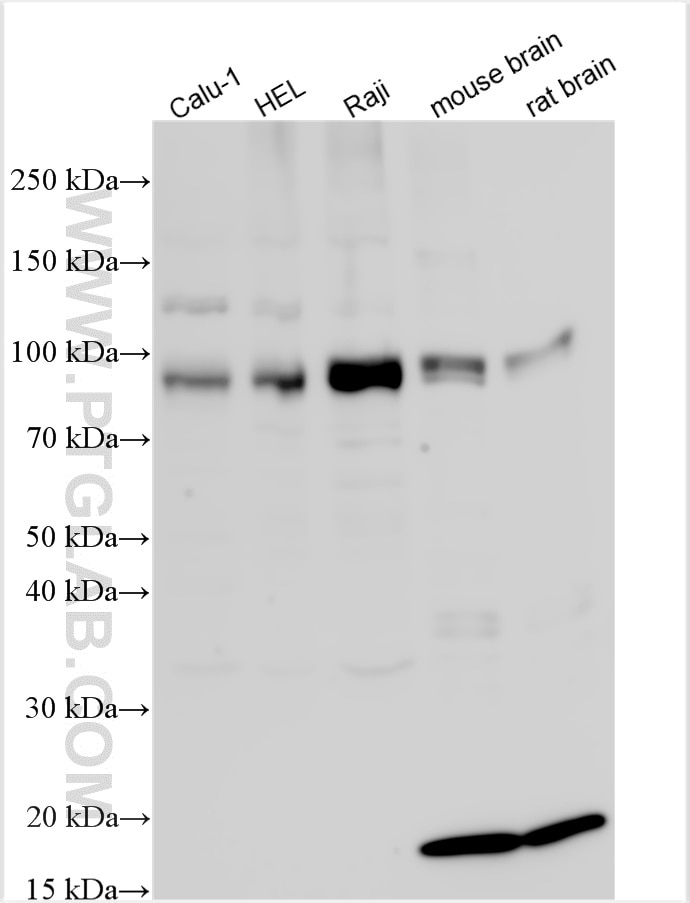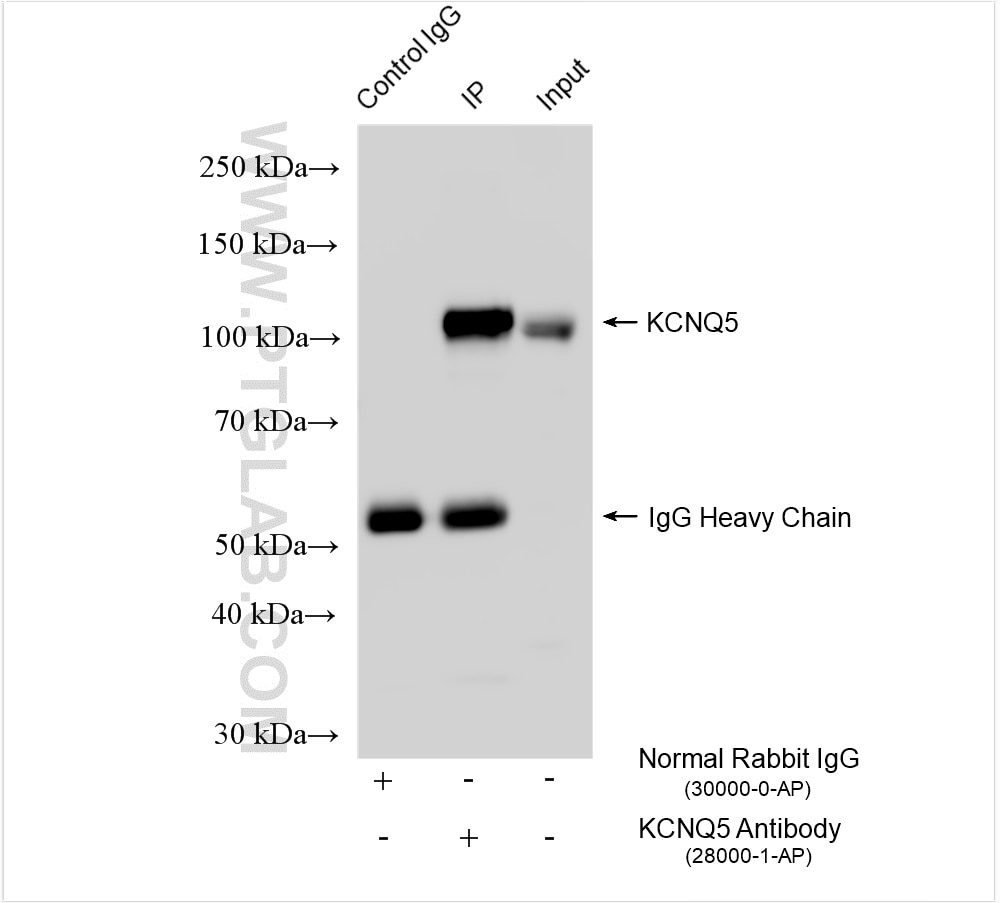Tested Applications
| Positive WB detected in | Calu-1 cells, HEL cells, Raji cells, mouse brain tissue, rat brain tissue |
| Positive IP detected in | Raji cells |
Recommended dilution
| Application | Dilution |
|---|---|
| Western Blot (WB) | WB : 1:1000-1:4000 |
| Immunoprecipitation (IP) | IP : 0.5-4.0 ug for 1.0-3.0 mg of total protein lysate |
| It is recommended that this reagent should be titrated in each testing system to obtain optimal results. | |
| Sample-dependent, Check data in validation data gallery. | |
Product Information
28000-1-AP targets KCNQ5 in WB, IP, ELISA applications and shows reactivity with human, mouse, rat samples.
| Tested Reactivity | human, mouse, rat |
| Host / Isotype | Rabbit / IgG |
| Class | Polyclonal |
| Type | Antibody |
| Immunogen | KCNQ5 fusion protein Ag27622 Predict reactive species |
| Full Name | potassium voltage-gated channel, KQT-like subfamily, member 5 |
| Calculated Molecular Weight | 102 kDa |
| Observed Molecular Weight | 100 kDa |
| GenBank Accession Number | NM_001160130 |
| Gene Symbol | KCNQ5 |
| Gene ID (NCBI) | 56479 |
| Conjugate | Unconjugated |
| Form | Liquid |
| Purification Method | Antigen affinity purification |
| UNIPROT ID | Q9NR82 |
| Storage Buffer | PBS with 0.02% sodium azide and 50% glycerol, pH 7.3. |
| Storage Conditions | Store at -20°C. Stable for one year after shipment. Aliquoting is unnecessary for -20oC storage. 20ul sizes contain 0.1% BSA. |
Background Information
Potassium voltage-gated channel subfamily Q member 5 (KCNQ5, also known as Kv7.5 and MRD46) is widely expressed in the brain and generates M-type current. It has a role in the regulation of neuronal excitability (PMID: 10816588). KCNQ5 mutations are associated with increased excitability and decreased repolarization reserve, lead to pathophysiology (PMID: 28669405).
Protocols
| Product Specific Protocols | |
|---|---|
| WB protocol for KCNQ5 antibody 28000-1-AP | Download protocol |
| IP protocol for KCNQ5 antibody 28000-1-AP | Download protocol |
| Standard Protocols | |
|---|---|
| Click here to view our Standard Protocols |





